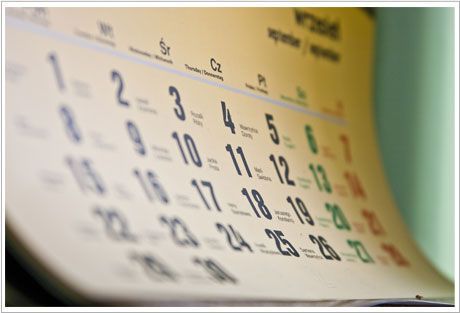Saint Joseph Parish
153 SOUTH FRANKLIN STREET
HOLBROOK, MA 02343
THE AVON-HOLBROOK CATHOLIC COLLABORATIVE
781-767-0605
Saint Michael Parish
87 NORTH MAIN STREET
AVON, MA 02322
LITURGICAL CALENDAR
Liturgical Calendar
Calendars serve an important purpose in our lives. They help us to stay organized and give structure and discipline to our routines. They mark important events and celebrate major milestones in our lives and in the lives of our loved ones, such as birthdays, anniversaries, and holidays.
Liturgical CalendarCalendars also help us to mark the passage of time by connecting us with the past and preparing us for the future. The marking of time and seasons helps us to make sense of the world around us.
In a similar way, the liturgical calendar helps us to remember the life of Jesus in a meaningful way. Jesus entered our world in time and space, and the liturgical calendar of the Church is an attempt to express and participate in the fullness of Jesus’ experience on earth. The purpose of the Liturgical Year Calendar is not to mark the passage of time, but to celebrate and understand more fully the entire mystery of Jesus Christ, from his incarnation and birth until his ascension, the day of Pentecost, and the expectation of his return in glory. During the course of a year, the Paschal mystery—the Passion, Death, Resurrection, and Ascension of Jesus—is viewed from different angles, in different lights.
The importance of Sunday in the liturgical year is not to be underestimated. For Christians, Sunday is the source and summit of the week. It represents the day God rested after creation, the day Christ rose from the dead, the day of Pentecost, when the spirit created the church, and the symbol of the eighth day, which is the day of eternity when we will receive the gift of new life in heaven. Often called “the Lord’s Day,” Sunday is the day in which we worship and praise God in the Eucharistic celebration. Pope John Paul II, in his 1998 apostolic letter, speaks about the central importance of Sunday in the lives of Christians: “It is clear then why, even in our own difficult times, the identity of this day must be protected and above all must be lived in all its depth…The Lord’s Day has structured the history of the Church through two thousand years: How could we think that it will not continue to shape her future?” (Dies Domini, 30).
The Liturgical Year is marked by the special seasons of Advent, Christmas, Lent, the Triduum (or Three Days), Easter, and Ordinary Time. The Liturgical Year begins on the first Sunday of Advent, which usually occurs around the beginning of December or the end of November, and ends on the feast of Christ the King. The Liturgical Year Calendar tells us what readings the Church has designated to be used for each day. It also names the special feasts and commemorations celebrated during each season and marks the dates of remembrance of the saints.




